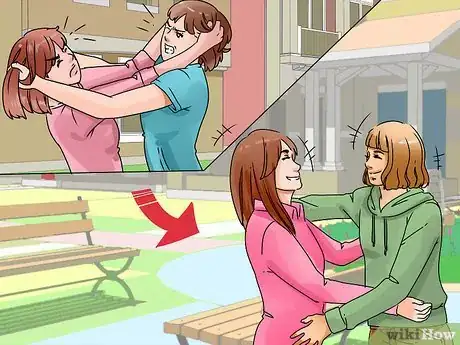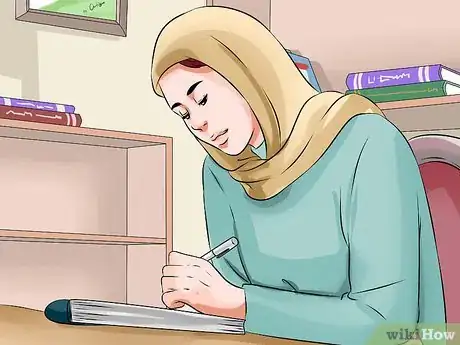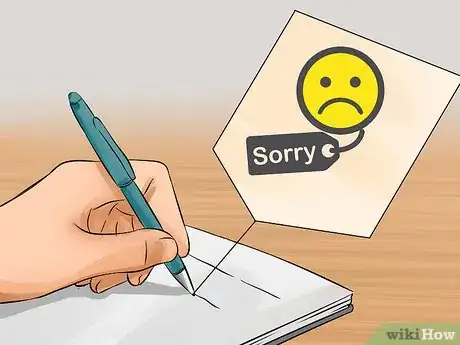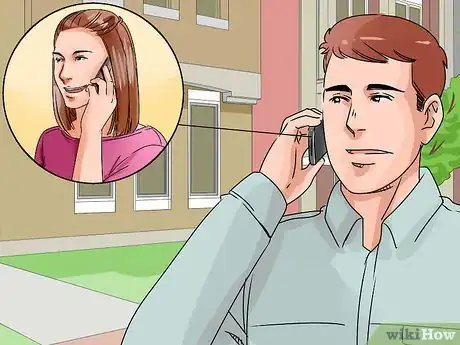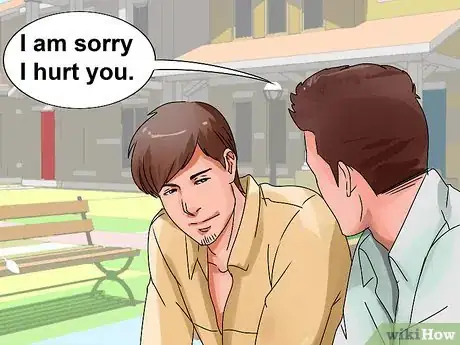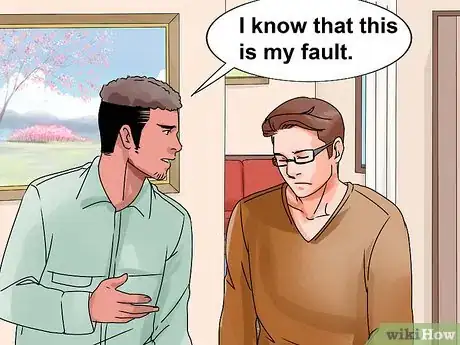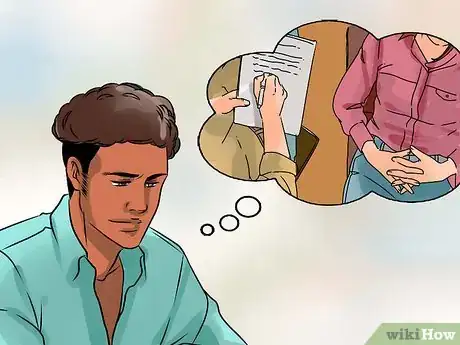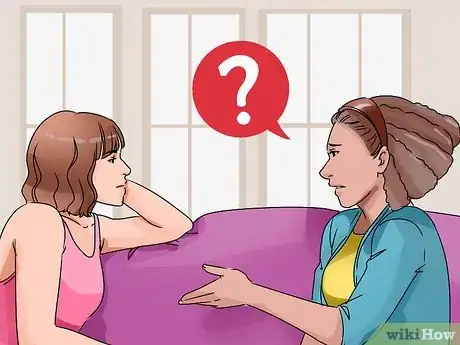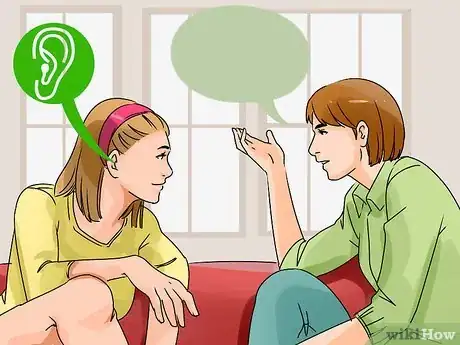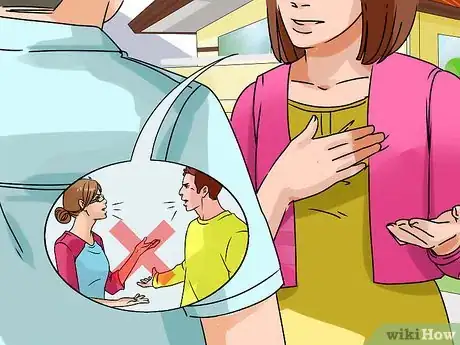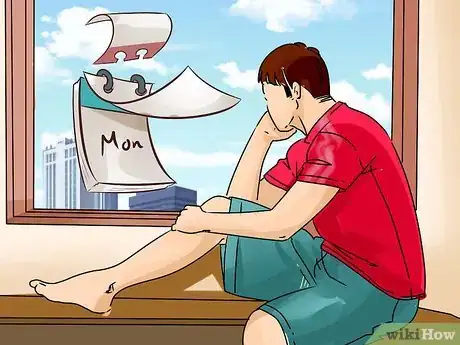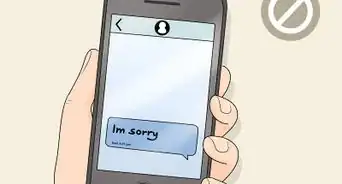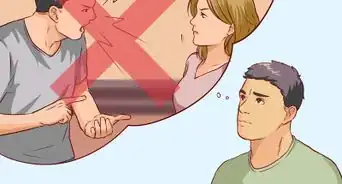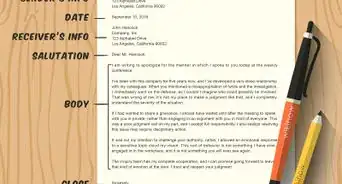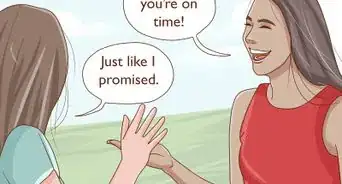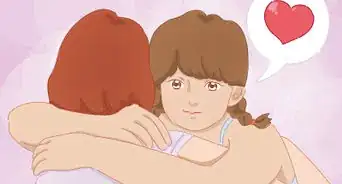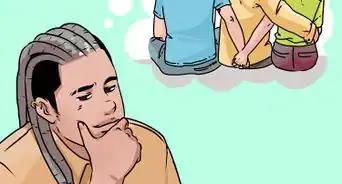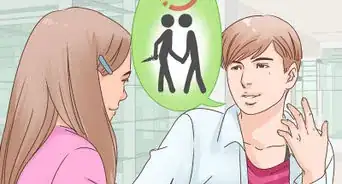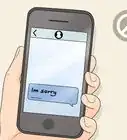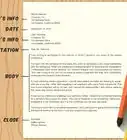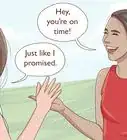This article was co-authored by Michelle Shahbazyan, MS, MA. Michelle Shahbazyan is the Founder of The LA Life Coach, a concierge life, family, and career coaching service based in Los Angeles, California. She has over 10 years of experience with life coaching, consulting, motivational speaking, and matchmaking. She has a BA in Applied Psychology and an MS in Building Construction and Technology Management from Georgia Tech University, and a MA in Psychology with an emphasis on Marriage and Family Therapy from Phillips Graduate University.
There are 7 references cited in this article, which can be found at the bottom of the page.
wikiHow marks an article as reader-approved once it receives enough positive feedback. In this case, 85% of readers who voted found the article helpful, earning it our reader-approved status.
This article has been viewed 244,761 times.
Apologizing is hard—no one likes to admit that they were wrong; apologizing to people you deeply care about, like your BFF, is even harder. Accepting responsibility for your hurtful actions takes courage. Face your fears and express sincere remorse for your poor behavior.
Steps
Preparing to Apologize
-
1Take responsibility for your actions. Before you can make an effective and sincere apology, you must forgive your BFF for his/her role in the fight. Once you set aside your hurt feelings, you can stop justifying your own negative actions.[1]
- Recognize that you made a mistake, acknowledge that your actions were harmful, and take responsibility for your words and deeds.[2]
-
2Gather your thoughts. Fighting with your best friend is stressful—you are likely experiencing a range of emotions, from anger to remorse. Writing your thoughts down on paper can help you process your emotions. Once you have completed your list, read through your notes. Highlight the positive comments that you should share with your friends and strikethrough invidious statements.[3]Advertisement
-
3Write and practice your apology. Finding the rights words to apologize with is extremely challenging. Instead of winging it, use your notes to craft your apology—you can write out a complete statement or jot down a few bullet points. Practice reciting your apology a few times to you feel confident and comfortable with the material.[4]
- Revise any parts that sound spiteful or awkward. Once you've made the revision, read through your apology again.
- You may have to write, read, edit, and re-read the apology several times before you get it right.
- If there's someone else who is aware of the situation, consider asking them for advice, but also take it with a grain of salt. Not all advice will be good.
-
4Ask your BFF (best friend forever) to meet with you. When possible, it is always best to apologize to someone in person. When you are face to face, you and your BFF have the benefit of seeing each other’s facial expressions and body language, which will decrease the risk of misinterpretation. Contact your BFF, express that you want to apologize, and set up a time for the two of you to meet in private.[5] [6]
Apologizing to Your BFF
-
1Express remorse for your actions. Sincere apologies are rooted in empathy. When you apologize to your best friend, there should be truth behind every claim you make.[10] If your expression of regret is hollow, your friend may not accept it. Tell your BFF that you are deeply sorry for hurting and or inconveniencing them.[11]
- ”I am so sorry I hurt you.”
- I feel horrible that I took advantage of your kindness.”
-
2Accept responsibility for your actions. Communicate to your BFF that you accept full responsibility for your actions. Do not place the blame on anyone else, especially your BFF.[12] Do not make any excuses for your behavior.[13]
- ”I recognize that I treated you poorly.”
- ”I realize that I instigated our argument.”
- ”I know that this is my fault.”
-
3Make restitution for your actions. State that you intend to make up for your actions. Your statement of restitution will depend entirely on the nature of your behavior. You may promise your BFF that you will never repeat the behavior or that you will work towards reforming yourself.[14]
- ”I will never _____ again.”
- ”I will start going to therapy.”
-
4Ask for forgiveness. After delivering your sincere apology, humbly ask your BFF for forgiveness. Let your best friend know that you value your relationship with him/her. Express that you will do your best not to hurt your friend in the future.
Moving Forward
-
1Listen to your BFF’s response. Following your apology, give your BFF the opportunity to respond. Let them express their anger and frustrations, and their pain and discomforts.[17] Do not interrupt them with defensive comments; do not force them to share the blame with you.[18]
- Maintain eye contact with your BFF.
- Lean forward to signal that you are engaged in the conversation.
- Mirror their body language to show that you sympathize with them.[19]
-
2Let it go. After saying your peace and actively listening to your best friend’s response, stop dwelling on the conflict. In order for your BFF to forgive you, you must recognize that you have done all you can to remedy the situation. If you have truly accepted responsibility for your actions, you will not bring up the conflict again.[20]
-
3Give your BFF time to forgive you. While you have apologized for your actions, your BFF may not be ready to put the conflict behind them. Remain patient with your BFF. Do not pressure them into forgiving you.[21]
- If they ask for space, wait for them to contact you. Be patient; this can take a week, a month, or even longer.
- If you press your friend to talk before they are ready, they may get stressed or frustrated and block you. This will make it harder to reconnect with them.
- In general, the more severe the fight was, the longer the forgiveness will take. Breaking their toy probably won't take as long as making with their boyfriend or girlfriend.
Expert Q&A
Did you know you can get expert answers for this article?
Unlock expert answers by supporting wikiHow
-
QuestionHow do I take responsibility for hurting my friend's feelings?
 Michelle Shahbazyan, MS, MAMichelle Shahbazyan is the Founder of The LA Life Coach, a concierge life, family, and career coaching service based in Los Angeles, California. She has over 10 years of experience with life coaching, consulting, motivational speaking, and matchmaking. She has a BA in Applied Psychology and an MS in Building Construction and Technology Management from Georgia Tech University, and a MA in Psychology with an emphasis on Marriage and Family Therapy from Phillips Graduate University.
Michelle Shahbazyan, MS, MAMichelle Shahbazyan is the Founder of The LA Life Coach, a concierge life, family, and career coaching service based in Los Angeles, California. She has over 10 years of experience with life coaching, consulting, motivational speaking, and matchmaking. She has a BA in Applied Psychology and an MS in Building Construction and Technology Management from Georgia Tech University, and a MA in Psychology with an emphasis on Marriage and Family Therapy from Phillips Graduate University.
Matchmaker, The LA Life Coach
-
QuestionMy best friend misunderstood me when I gave her a letter. How can I straighten things out between us?
 Community AnswerApproach her and tell her about the misunderstanding, and explain to her what you actually meant. If she's still upset, give her time to process the information and perhaps get over her hurt feelings, then try to approach her again.
Community AnswerApproach her and tell her about the misunderstanding, and explain to her what you actually meant. If she's still upset, give her time to process the information and perhaps get over her hurt feelings, then try to approach her again. -
QuestionDoes giving my best friend time mean that I should stop talking to him?
 Community AnswerYou don't have to completely cut off contact. If you see him, smile and say hello and see how he responds. Just don't put pressure on them to accept your apology if they're not quite ready. Be patient and let your friend set the tone of your interactions.
Community AnswerYou don't have to completely cut off contact. If you see him, smile and say hello and see how he responds. Just don't put pressure on them to accept your apology if they're not quite ready. Be patient and let your friend set the tone of your interactions.
Warnings
- Give them time to forgive you.⧼thumbs_response⧽
- Avoid miscommunication.⧼thumbs_response⧽
References
- ↑ http://www.writeexpress.com/How-to-apologize-to-a-friend.html
- ↑ Michelle Shahbazyan, MS, MA. Life Coach. Expert Interview. 18 March 2020.
- ↑ http://www.writeexpress.com/How-to-apologize-to-a-friend.html
- ↑ http://www.writeexpress.com/How-to-apologize-to-a-friend.html
- ↑ http://www.writeexpress.com/How-to-apologize-to-a-friend.html
- ↑ http://fambizpv.com/articles/resolving_conflict/meaningful_apology.html
- ↑ http://www.chatelaine.com/health/sex-and-relationships/how-to-apologize-the-right-way/
- ↑ http://fambizpv.com/articles/resolving_conflict/meaningful_apology.html
- ↑ http://www.writeexpress.com/How-to-apologize-to-a-friend.html
- ↑ Michelle Shahbazyan, MS, MA. Life Coach. Expert Interview. 18 March 2020.
- ↑ http://fambizpv.com/articles/resolving_conflict/meaningful_apology.html
- ↑ Michelle Shahbazyan, MS, MA. Life Coach. Expert Interview. 18 March 2020.
- ↑ http://fambizpv.com/articles/resolving_conflict/meaningful_apology.html
- ↑ http://fambizpv.com/articles/resolving_conflict/meaningful_apology.html
- ↑ http://www.writeexpress.com/How-to-apologize-to-a-friend.html
- ↑ http://www.bloomsbury-international.com/blog/2013/10/18/how-to-apologise-in-english/
- ↑ Michelle Shahbazyan, MS, MA. Life Coach. Expert Interview. 18 March 2020.
- ↑ http://www.writeexpress.com/How-to-apologize-to-a-friend.html
- ↑ http://www.skillsyouneed.com/ips/active-listening.html
- ↑ http://www.writeexpress.com/How-to-apologize-to-a-friend.html
- ↑ http://www.thehopeline.com/when-your-best-friend-is-mad-at-you/
About This Article
Apologizing to your best friend can be tough, but taking responsibility for your actions and saying sorry is an important first step to patching things up between you. Tell your friend you’re sorry for hurting them without making any excuses, so they can see that you’re sincere. For example, you might say: “I’m really sorry for hurting you Sasha, I feel bad for not inviting you.” Let your friend know you’re taking full responsibility for what you did by saying something like, “I was wrong to assume you didn’t want to come to the party. I should have asked you first.” To help make things right again, offer to do something differently in future, such as by promising: “Next time I’ll make sure to talk to you before I go to a party.” You might even offer to fix something about your own behavior, like not making assumptions or learning to be more punctual. Keep reading for more advice from our co-author, including how to ask your friend for forgiveness.
